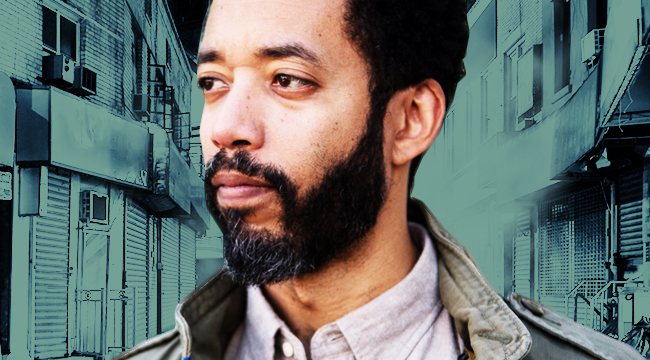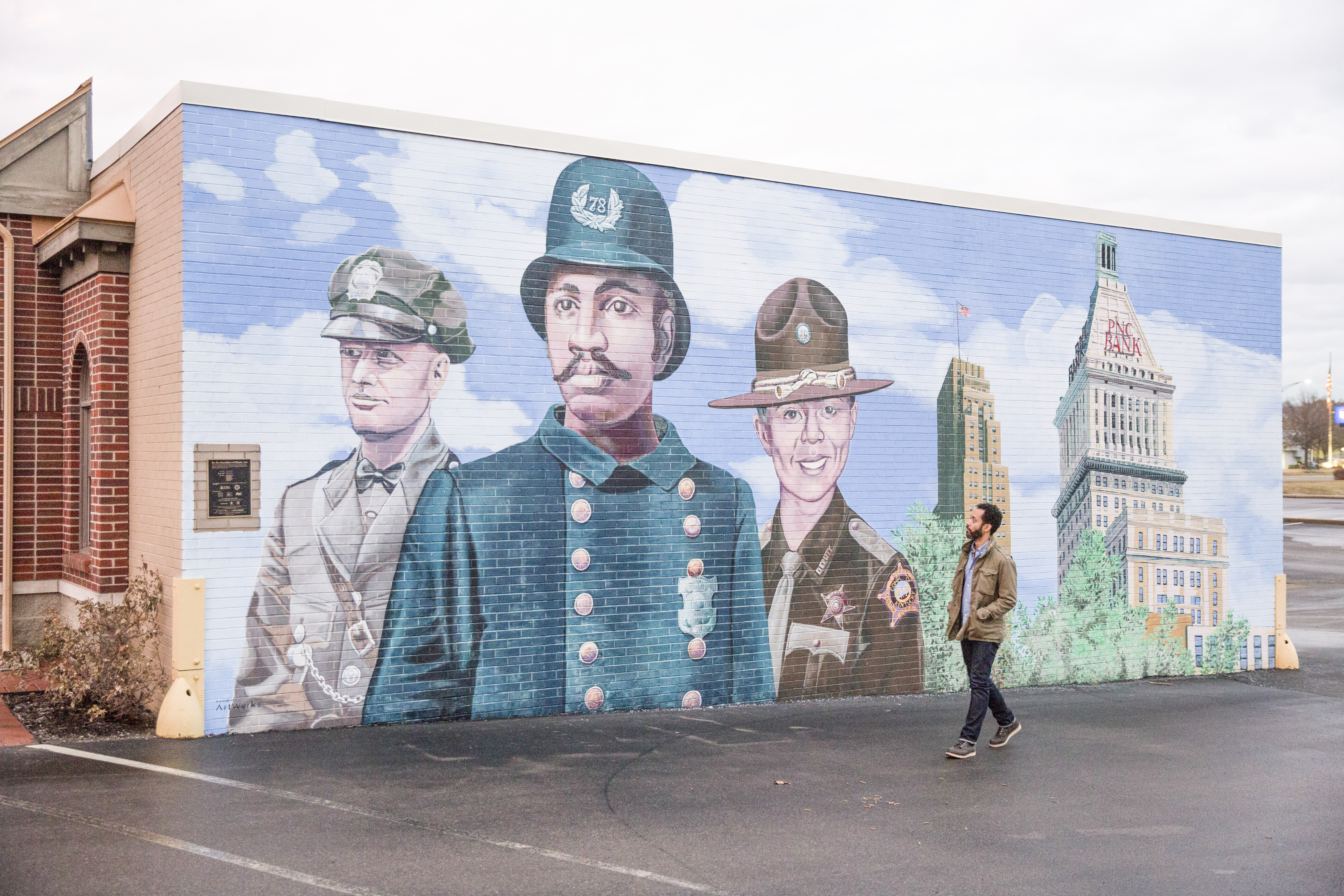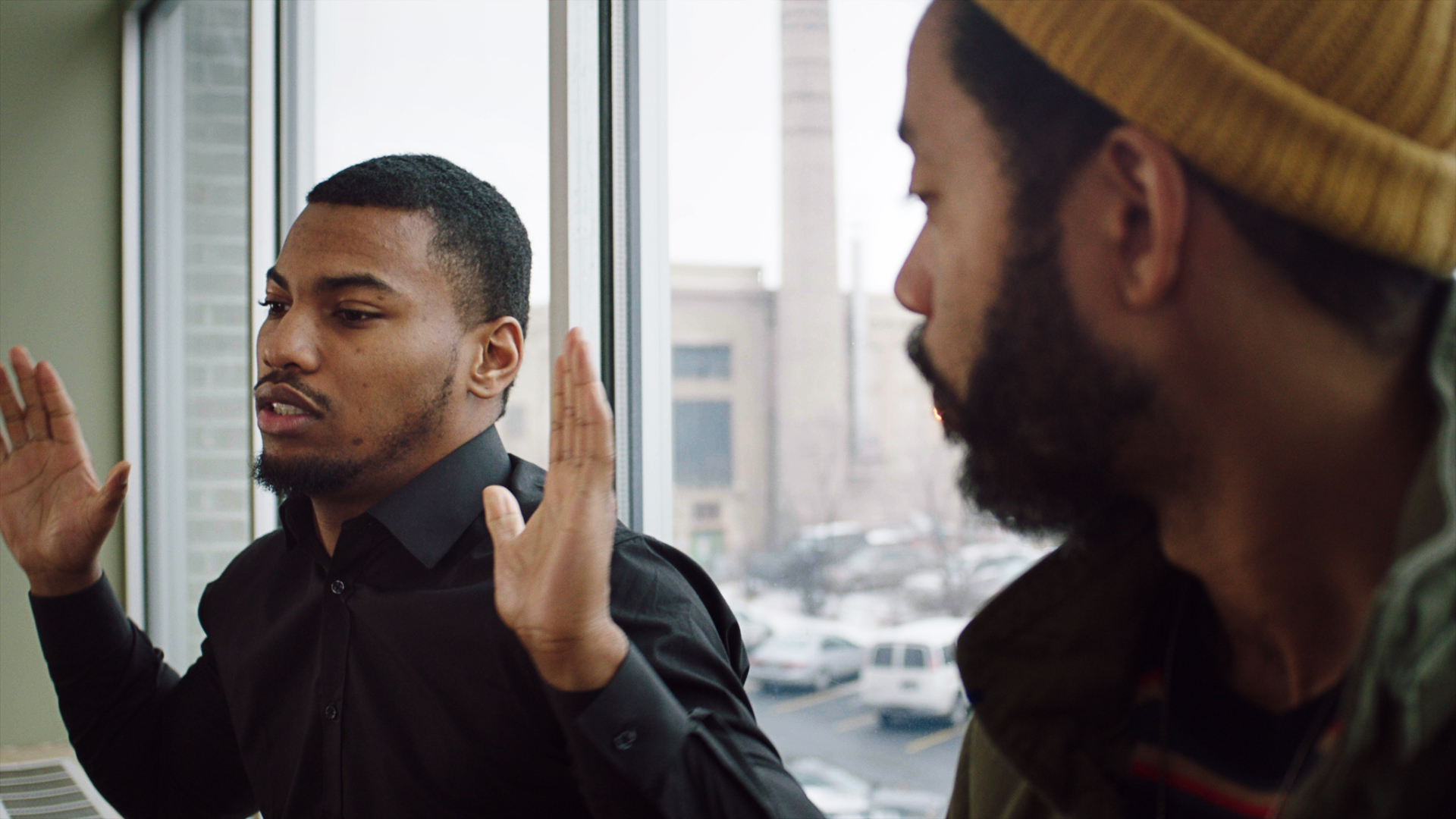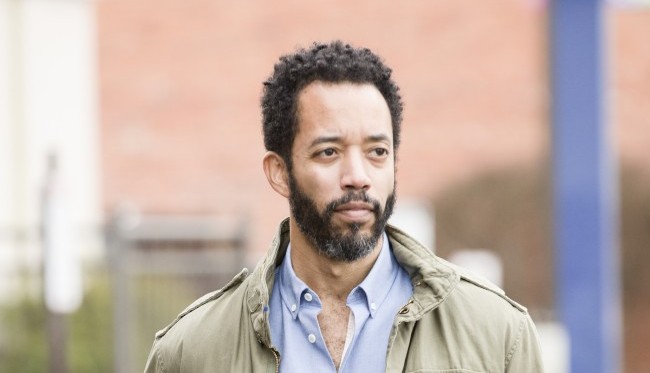
What does it mean to have a bullhorn in 2018 when nothing lasts long enough for reflection and everyone is shouting their opinion into the void? Are you just trying to be heard, are you trying to change minds, or are you just trying to get people talking and thinking?
With Wyatt Cenac’s Problem Areas (premiering on HBO tonight, Friday April 13 at 11:30 pm), the comic is the latest to venture into a new kind of late night war where hosts are fighting to find their footing in a heated national conversation while also (and sometimes secondarily) seeking laughs. It’s a hell of a challenge, but one that Cenac seems uniquely prepared to face thanks to the show’s approach.
We sat down with Cenac to discuss that approach, how his experience on The Daily Show helped to prepare him for this moment, whether he thinks he can convince the unconvinceable (and if he wants to try), and why bottom-up problem-solving (and learning from how others cope with the world’s biggest problems) is more important and more powerful than Donald Trump’s words.
The tagline for this show is “questionable solutions to unquestionable problems” but there are people in this world who don’t necessarily see a problem where most people see a problem. Such as police brutality. You see some polls where, inexplicably, a lot of people don’t think it’s a problem. Are you trying to reach those people? How do you deal with that challenge?
I think I am interested in just kind of having a conversation about this because I also think it’s… Am I trying to convince somebody that police brutality is a problem? I’m never gonna convince that person. [Laughs.] And that’s not, I don’t think, for me, the focus. I think the focus for me is getting into the nuance of the conversation that, when we talk about police brutality, there are so many aspects to it and it’s frustrating and it’s one of those things that feels impossible to overcome. And it’s just like “Okay, well we’ve just gotta deal with this.”
What was interesting to me was trying to go to different places to see: How do people find answers to things, [like] if there were a rash of police shootings in your city? How do you, as community members, as city leaders, as law enforcement… How do you come together? Because I think what we see, at least in the national conversation, is we see a police shooting happen, a black person gets killed by police in X city, everyone’s upset. And then another headline kind of draws our attention away and we go off to that other headline. The people in X city, they have to reckon with this, they have to figure it out. They’ve gotta do whatever they gotta do to make this work.
What if you looked at those stories and looked at those stories in a way that… is what’s happening here something that could be replicated somewhere else? Is what is going on here something that has value and benefit someplace else? And so it’s not really about changing anyone’s mind as much as it is showing people that something is possible.
If you watch a cooking show or a home improvement show, you watch one of those things and it’s like “Oh, I just learned how to make a dining table.” Maybe I’ll make a dining table… or not. But I saw, like, “Oh, it’s actually easier than I thought.” I think there are some people in the world who would then say, “Okay, I’m gonna go out and I’m gonna buy some tools and I’m gonna make a dining room table.” What’s interesting about doing something like this, is that I’m not trying to tell people to go make dining rooms tables. But if you show people the possibilities of something…
Doing this and going through this process, it was like, “Oh wow, that’s a really interesting thing that that city does. Why couldn’t that happen here in New York? Why couldn’t we do that?” And I think it’s that curiosity that drove both in the inception of this and then in the development and ultimately, hopefully, in the finished product that people see when they watch.

Obviously, this is coming from two different places. As a comedian, you want it to be funny. And you want it to inspire people. But at the end of the day, what feels like a win for you with this?
I don’t know. I mean, selfishly, a win for me is that I get to keep doing this. I think that’s a direct win.
We’re in a moment where there are a lot of late night shows that are very conscientious. There’s always more motive behind this than just, “Hey, let’s be funny! Hey let’s do a show, let’s keep this career going.” You know what I mean?
I do, yeah. And I think, to me, my approach going into this was to go into this curious. And to go into this not being worried about if I don’t have all the answers. Not being afraid to get it wrong and just being open to learning. So, if there was any tangible or quantifiable thing I might look for as like, “Okay, that’s a success…” If it’s people who watch the show being more curious, that would be the thing beyond being able to do the show for as long as I wanted to. It would probably be, yeah, that my curiosity somehow creates a catalyst for someone else’s curiosity.
How do you keep the spark lit? It’s hard to keep an interest in the day’s events. I imagine when you’re going into something like this it requires you to put your head into the problems of this world for a while and focus on that. I’m just curious. It’s like a self-care thing, really.
I think for everyone, staff included, we have definitely told everybody if you don’t have a therapist, get yourself a therapist. [Laughs] I think we all, as a society, probably could benefit from being able to talk to therapists and deal with mental health in ways that make us healthier individuals on a regular basis. For me, I think it’s not that different. This stuff is heavy stuff.
What’s nice is that there are a lot of people — researchers, writers, producers, editors — living with all of this stuff and you can’t… there’s maybe something nice about some of that being spread out amongst everyone and all of us feeling like we are sort of in this thing together. That definitely has, I think, I hope… has been beneficial for everyone working on the show.
For me, personally, we’re living with something for a while but I also recognize that there are people, whether they’re social workers, whether they’re people who have been the victims of violence, whether they’re police officers that live with the trauma of these stories over years and careers and lifetimes… I think knowing that puts it in perspective for me, a little bit. I get to tell these stories, but I’m also not the person who has to live with them in the same ways that other people do. So, yeah… And then whiskey. [Laughs]

There’s a quote about The Daily Show that I can’t place. Essentially, the idea was that it can be very hard doing a show like this and then looking at the world and having this bullhorn where you can actually talk about world events and talk about things and then seeing that things just continue to not be changed.
Right.
Do you worry about burnout?
Yeah, burnout is always a concern and having worked on The Daily Show, I think Jon [Stewart] spoke to it on his last show. He’d been doing the show for 16 years and it’s not like anything changed. During my time, we spent days upon days railing about Fox News and it’s not like Fox News went out of business. If anything, they’re stronger than ever. [Laughs.] Despite the fact that they had horrible people ousted from the place. It’s not as though they have changed. And so in that way, it can feel really fruitless. But I never went into this thinking, “Alright, I’m gonna change the world with this TV show.”
I think I went in thinking, “All right, I hope to entertain people in a way that perhaps shines a light on some things that they weren’t aware of before or, as aware of as they could be.” What they do with that awareness, I have no control over. And I also can take no credit for. But, if at the end of the day, I have entertained an audience and made them perhaps look at things slightly differently, even if just for two minutes, that feels somehow better than…
Giving in?
Yeah.
Just kind of like saying, “It’s not gonna work, nothing’s gonna change anything.”
Yeah.

Because I can definitely see that. Especially with all of these [conscientious late night] shows. It’s not coincidental that the people on [a lot of] those shows are people that have experience on The Daily Show. You’ve seen that frustration and yet you continue to try and keep the conversation going. That’s very important, I think.
Well, and I think for me, the jokes I’ve always wanted to tell as a comedian were jokes that kind of hit you in a way that were like, they didn’t necessarily have to be topical as far as, “Right the President said this or the President did that. Because I just frankly don’t give a shit. Not that I don’t give a shit. But…
Well especially now, it’s just so much noise and there are so few things that are concrete.
It’s a lot of noise, but it’s also one of those things where it’s like a President can’t change the world by themselves. And so, even with Trump, we can get mad at Trump but let’s not forget that Jeff Sessions has been around forever. Mitch McConnell’s been around forever. Paul Ryan’s been around for a minute. He’s basically giving them cover to do the things they do, but also, they’re not the full agents of change that we sometimes worry they are.
We live in these cities and if you want change to happen, you maybe have a greater chance of making it happen in your own city and then if that is popular enough, it will maybe spread out to the city next to it, and the city next to it. Or, it will, at least, create a blueprint that other people will say, “Oh yeah, we should do this.”
We talk about something like marijuana legalization. It’s not like one national mandate that happened, it’s one place doing it, being able to say, “All right, there’s a financial benefit to doing this. And other states and other cities being like, “Oh yeah, we could do that too.” I think whether it’s marijuana legislation or whether it’s creating a sanctuary city, if we focus that energy in our own backyards, we could probably do more things than just yelling at a weird bigot who happens to be subletting the White House.
It’s interesting because a lot of the focus is always on top-down change, but anything we’ve ever really accomplished has been bottom-up.
Yeah.
I mean, look at civil rights. Honestly, I’m not throwing praise at them, but the NRA’s effectiveness in terms of legislation has been bottom-up, not necessarily top-down. So it’s an interesting way to focus on problems [and issues], especially with marijuana legalization, because again, a lot of the progress has been bottom-up.
Yeah.
If we wait for top-down it will never happen.
Yeah, and I think with all those conversations with gun control, with all those things it’s not gonna be legislation, it’s gonna be a bottom-up change. And that, to me, feels like that’s always been what’s interesting: focusing on the people and how people make change.
Wyatt Cenac’s Problem Areas premiers on HBO Friday April 13 at 11:30PM






